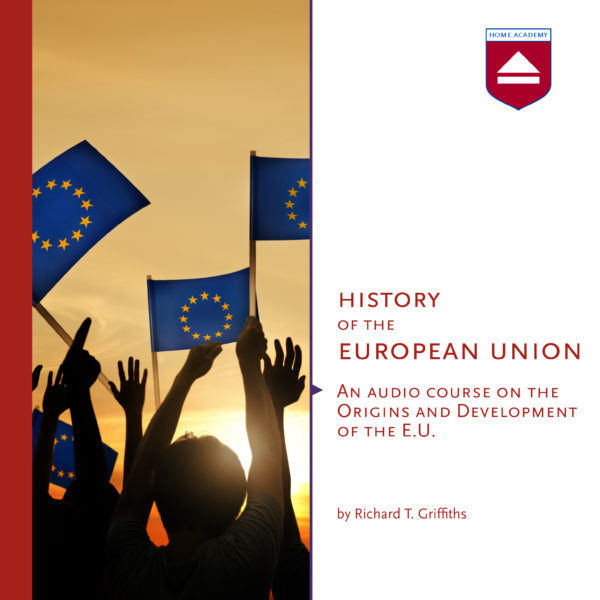History of the European Union
History of the European Union
An audio course on the Origins and Development of the E.U.
Door: Griffiths, Richard T.
Luisterduur: 3 uur 57 minuten
Datum uitgave: 10/04/2004
ISBN: 9789085309758
Prijs: €25,00
Samenvatting
The history of today’s European Union (EU) begins in May 1950 when the French foreign minister Robert Schuman offered to pool his country’s coal and steel resources with those of France’s enemy, Germany, under the control of a single supranational authority. A year later the governments of France, Germany, Italy and the Benelux countries signed the Treaty of Paris establishing the European Coal and Steel Community. Hereby, they relinquished their national sovereignty over heavy industry. Since then, the Community has been in constant movement; ebbing and flowing, but never still. Its subsequent development has often been described in two terms – widening and deepening. These are often juxtaposed, but unnecessarily so. By widening is meant expanding the geographical scope of the Community by accepting new member states. By deepening is meant the assumption by the Community of new tasks of the acquisition by Community institutions of greater responsibility in executing the tasks that it already has.
These lectures explain the underlying reasons behind the main developments of the insitutional architecture of the EU. To explain the milestones in that history it addresses three related questions:
– The form: why was supranationality chosen?
– The timing: why did events occur when they did?
– The competencies: why were new policy areas chosen?
To answer these questions we eschew the clutter of day-to-day politics and negotiations and turn to deeper structural causes. The result is a history that is richer and intellectually more satisfying than much of the more elegiac literature of the European Union that passes for history.
Published in cooperation with Studium Generale Leiden University
Download de bijlage bij het hoorcollege History of the European Union.
Inhoudsopgave
H1. The First Supranational Community. The European Coal and Steel Community
H2. A Missed Chance. The European Defence Community
H3. The Creation of the European Economic Community. The Rome Treaties
H4. Reactive Nationalism? De Gaulle and Europe
H5. Reactive Nationalism? The British Membership Problem
H6. 1992. The Completion of the Internal Market
H7. The European union. Economic and Monetary union
H8. A Family of Twenty-five. EU Enlargement
Over de spreker: Griffiths, Richard T.
Prof. dr. Richard Griffiths taught European Studies at UMIST (Manchester) before being appointed to the chair of Economic and Social History at the Free University, Amsterdam. In 1987 he became Professor of Contemporary History at the European University Institute, Florence, where he directed the Institute’s research project of the history of European integration. In 1995 he returned to the Netherlands as professor of Economic and Social History at Leiden University.
Professor Griffiths undertakes research on 19th and 20th century economic history and on historical and contemporary aspects of European integration. His works include European Reconstruction: a comparison between post-war Europe and post-Soviet Russia and Europe’s First Constitution: the European Political Community, 1952-1954.







